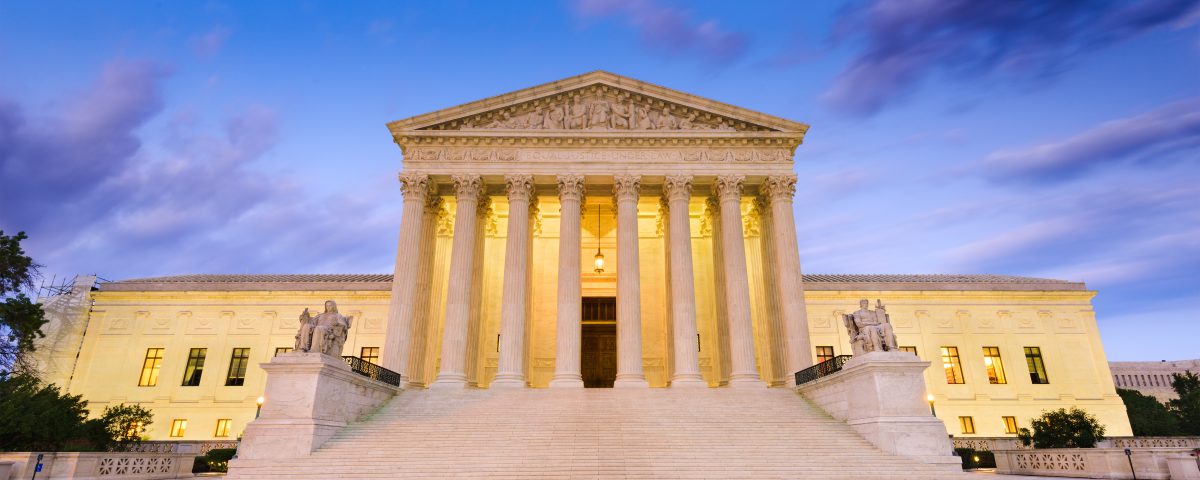How Supreme Court Online Sales Tax Ruling Applies to Your Business

3 Key Elements to Build a Strong (and Legal) Affiliate Marketing Program
June 28, 2018
Cosmetics Safety: 6 Resources to Help you Make More Educated Choices
August 17, 2018We’re very lucky at Law On The Runway to be able to present this following article from our teammate Hilary Jochmans, based in D.C.. Hilary went to the Supreme Court to listen to the oral arguments of Wayfair v. South Dakota. She wrote the following article with support from our summer intern Melissa Megowan.
Have you ever gone to buy an item, maybe a dress or shoes online, and noticed there is no sales tax listed for the item? For consumers this feels like is a great deal because it is cheaper than buying the item in a physical store where there is sales tax.
Did you know that depending on where the buyer is in the US, the buyer might have had the burden of figuring out the sales tax and paying it on her taxes anyway? No? Well, you are not alone. But, that all changed on Thursday, the 21stof June, when the Supreme Court handed down its ruling in Wayfair v. South Dakota.
Sales tax has been around for years. But, the issue of sales tax for online purchases is relatively new. As is often the case, the law had not caught up with technology, and prior rulings had no idea how big this new-fangled Internet thing would actually get.
In 1967, the Court held in National Bellas Hess Inc v. Dept of Revenue Illinois, that based on Commerce Clause protections, Illinois could not require an out-of-state business to collect its sales tax unless the business had a physical presencein Illinois. In 1992, in Quill Corp. v. North Dakota, the Court reaffirmed the need for a physical nexus for a state to have the power to tax. The Quillcase involved purchases from mail order catalogues.
Appropriately, on Tax Day, April 17, the US Supreme Court heard oral arguments in South Dakota v. Wayfair, to reconsider whether states can collect sales tax for online purchases regardless of whether the retailer has a physical presence in the state. On June 21, the Court overturned decades of precedence and held 5-4 that states can tax online retailers, regardless of whether they have a physical presence in the state.
Much has changed technologically in the past 26 years. Since 1992, internet sales have grown exponentially. Purchases are not made from catalogues – they are made from websites. In 1992, there were maybe 10 websites total. Today, there are over a billion sites from which buyers can purchase everything from apples to zinfandel, and everything in between. Assuming these online sales are in lieu of sales at brick and mortar locations, the states are losing out on what was once a huge revenue stream for them from sales tax. The Government Accountability Agency (GAO), estimates that between $8 billion to $13 billion nationwide went uncollected in 2017 for online purchases. These revenues could be used for police, health care, education and infrastructure in the localities.
In the absence of federal laws to allow sales tax on internet sales, states have established laws to reach these transactions by either stretching the definition of physical presence or using economic nexus as a justification for taxation. Over two dozen states have acted. The result has been a myriad of tax laws among the states covering an estimated12,000 sales tax jurisdictions in the US.
In the 2015 case, Direct Marketing Association v. Brohl, Justice Kennedy recognized the need for a fresh look at the online sales taxation issue and urged a new case. The Court got one this year with South Dakota v Wayfair. At issue was whether South Dakota could tax a retailer that conducts at least 200 transactions a year or has at least $100,000 in annual sales, regardless of a physical presence in the state.
No Physical Presence Needed for Sales Tax Collection
In writing for the majority in Wayfair, Justice Kennedy overturned the physical presence requirement for taxation. States will now have the power to craft their own individual sales tax requirements. Some may choose to allow dollar thresholds or a minimum number of transactions in a state in order to trigger the tax. Even after this ruling, there will still remain a patchwork of tax rules among the hundreds of taxing jurisdictions in the US including states, cities and municipalities.
In his dissent, Chief Justice Roberts saw no crisis and no need for the Court to act when Congress has the authority to act. However, Congress has lacked the will to act. Several bills have been introduced over the past decade but to no avail. Policy, politics and re-election worries have hampered any meaningful and substantive Congressional action.
The Administration weighed in on the side of the states in the Wayfaircase. However, as the Wall Street Journalhas previously reported, there is a difference between the Trump Administration policy, and the TrumpStore.com practice. While the Administration supported states’ right to collect sales tax for online purchases, TrumpStore.com failed to collect sales tax in more than 40 states, including New York.
What does this ruling meaning for those in the fashion world?
For retailers, there was division on this case. Some large retailers who operated in many states, argued that there needs to be a level playing field between online and brick and mortar stores for taxation. However, others, such as Etsy and eBay, argued that they are merely the conduits or platforms for retailers to sell and therefore should not have to be taxed. Amazon has collected sales tax for its own item sales but has not for third party vendors. Now, it will most likely have to collect for those purchases too.
Change to the way consumers shop and unanswered questions
If it will no longer be cheaper to purchase an item online, will consumers go back to the malls? Or, is the ability sip and click in the privacy of one’s home so ingrained in the modern consumers’ mentality that they would still rather forgo the mall? What will international companies do now that a physical presence is no longer required in order to be subject to a tax? If online purchases are now subject to a tax, what about other online activities such as downloads, or even just internet access? These and other questions will play out over the next few months as many states rush to implement tax laws before the holiday shopping season.
As with all Law on the Runway posts, please use this as general information, not as legal advice. If you have any questions regarding privacy laws, you may email hello {@} lawontheruway.com.

